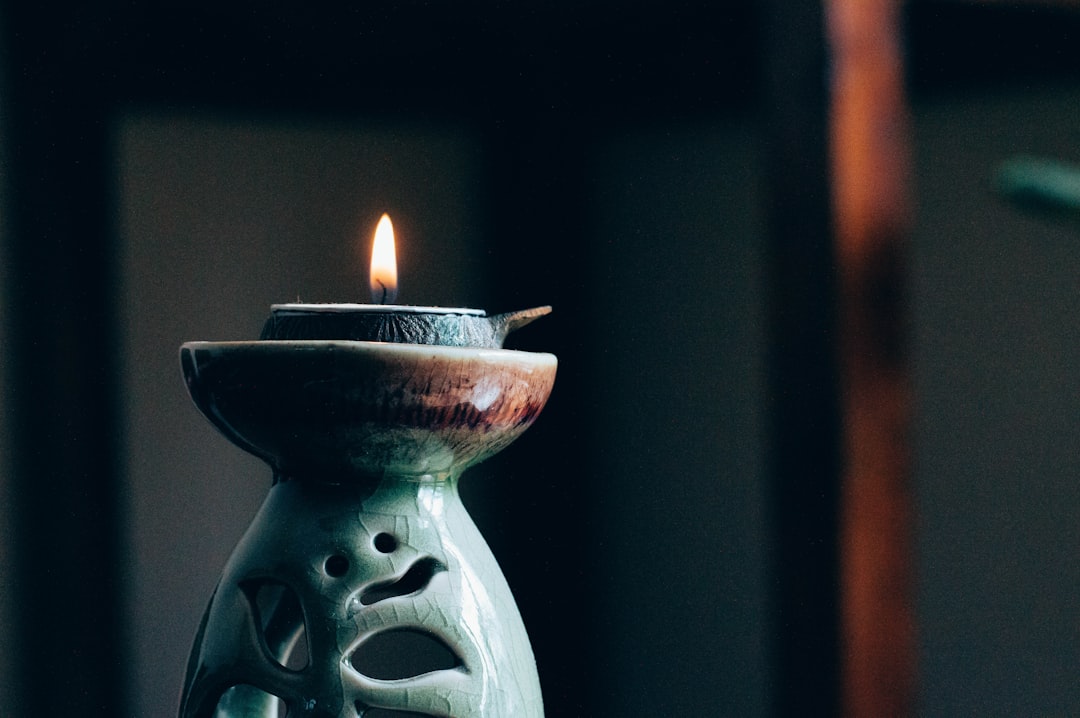In a world filled with chaos and noise, it can be difficult to find stillness and inner peace. The concept of being still and knowing God’s presence is often overlooked, yet it holds immense power. This article delves into the understanding of stillness, exploring its connection to inner peace, and offering practical tips for incorporating it into daily life. Read on to discover how embracing stillness can deepen your spiritual practice and enhance your wellbeing.
Embracing the Concept of Stillness
Have you ever found yourself seeking a moment of pause, a break from the overwhelming noise and chaos of life? Perhaps you’ve come across the phrase, “be still and know that I am God,” but what does it truly mean to embrace stillness and understand God’s presence?

To start, it’s important to note that stillness doesn’t necessarily mean physical stillness. While it can involve sitting in quiet meditation or contemplation, it can also happen within our busy and active lives. Rather, stillness is a state of mind and being – one of surrender and openness to the divine.
When we take a moment to be still, we create space for God’s presence to enter our lives. In the quietness, we can begin to hear the whispers of divine communication and feel the serenity and tranquility of inner peace. Yet, this doesn’t come easily. Stillness requires patience, trust, and surrender – qualities that are often difficult for us to cultivate in a world that emphasizes productivity and constant movement.

So how can we start to embrace stillness in our lives? Here are a few practical tips:
Find a quiet space – Whether it’s a room in your home or a peaceful spot in nature, carving out a designated quiet space can help you focus your mind and invite stillness.
Experiment with different forms of meditation or contemplation – There are countless techniques and practices for cultivating mindfulness and inner peace. Try a few and see what resonates with you.
Incorporate stillness into your daily routine – Whether it’s a few minutes of breathing exercises in the morning or a mindful walk in the evening, find small ways to incorporate stillness into your daily routine.
Let go of distractions – Often, it’s our distractions and constant stimulation that keep us from experiencing stillness. Try turning off your phone for a set amount of time or limiting your time on social media in order to create space for stillness.
Remember, the practice of stillness is just that – a practice. It takes time and effort to cultivate, but the rewards are immeasurable. As Psalm 23:2 reminds us, “He makes me lie down in green pastures, he leads me beside quiet waters, he refreshes my soul.” Take a moment to embrace stillness today and feel the rejuvenation and clarity it brings to your life.
God’s Presence in the Quietness
As a Christian, you have likely heard the phrase, “Be still and know that I am God,” a number of times. But what does it mean to truly be still and know God’s presence?
In our busy, chaotic world, stillness can feel like a foreign concept. We fill our lives with noise and distractions, leaving little room for quiet contemplation. But if we want to experience the fullness of God’s presence, we must learn to embrace the stillness.
When we are still, we create space for God to speak to us. In the quietness, we can move beyond the chaos of our thoughts and emotions and connect with His voice. It is in these moments of stillness that we can hear God’s whispers and feel His gentle nudges.
The Bible is full of verses that speak to the power of quietness and stillness. Psalm 46:10 says, “Be still and know that I am God.” Isaiah 40:31 says, “But those who wait on the Lord shall renew their strength; they shall mount up with wings like eagles, they shall run and not be weary, they shall walk and not faint.” And in Psalm 62:5, we read, “My soul, wait silently for God alone, for my expectation is from Him.
But how do we actually experience the stillness and connect with God’s presence? One effective way is through the practice of meditation and contemplation. These activities can help us focus our minds and hearts, creating the space for God’s presence to fill.
Another important aspect of stillness is the connection to inner peace. When we are still, we can find a sense of calm and tranquility, even in the midst of chaos. And through this peace, we can more easily trust in God’s plan and surrender our worries to Him.
Taking time to be still can be a powerful spiritual practice, but it is also something that we can incorporate into our daily lives. It might mean taking a few minutes each morning to sit in silence before starting your day. Or perhaps you could try incorporating a mindfulness practice into your daily routine. Whatever form it takes, finding moments of stillness can be an essential aspect of Christian living.

By embracing the concept of stillness and creating space for God’s presence in our lives, we can experience greater clarity, focus, and rejuvenation. And perhaps most importantly, we can deepen our relationship with God, feeling His love and guidance in every aspect of our lives.
Understanding Meditation and Contemplation
In today’s world, it’s easy to feel overwhelmed and constantly distracted. We’re constantly bombarded with information, deadlines, and never-ending to-do lists. It can be hard to take a moment for yourself, to find peace and stillness. However, it’s in those moments of stillness that we can connect with God’s presence.
Meditation and contemplation are two practices that can help us achieve stillness and connect with God. Meditation involves focusing your attention on a particular object to calm your mind and achieve inner peace. Contemplation, on the other hand, is a deeper form of reflection that allows us to engage with scripture and ask questions of God.
In Psalm 46:10, it says “Be still, and know that I am God.” This is what meditation and contemplation are all about. It’s about taking a moment to stop the busyness, the chaos, and just be still in God’s presence. When we can quiet our mind and find inner peace, we create a space for God to speak to us.
Incorporating meditation and contemplation into your spiritual practice can be daunting. Here are a few tips to get you started:
Find a quiet space: Creating a space where you can be alone and undisturbed is key. Whether it’s your bedroom, a corner of your office, or a quiet park, find a space where you can be still.
Set a timer: Start with just 5-10 minutes a day and work your way up. Set a timer so you can be fully present in the moment and not worried about how much time has passed.
Focus on your breath: Close your eyes and take a few deep breaths. Focus on the air moving in and out of your body. When your mind starts to wander, gently bring it back to your breath.
Use scripture: Choose a verse or passage to focus on during your meditation or contemplation. Ask God to speak to you through his Word.
Be patient: Meditation and contemplation are practices that take time to develop. Don’t get discouraged if you’re not experiencing immediate results. Keep showing up and let God work in you.
Incorporating stillness into your daily life can be a challenge, but it’s a powerful practice that can have a profound impact on your mental and emotional well-being. By embracing meditation and contemplation, we can create a space for God’s presence and find the peace that surpasses all understanding.
The Connection Between Stillness and Inner Peace
When was the last time you took a moment to stop and just be still? In a world that is constantly buzzing with activity and noise, finding stillness can seem like a daunting task. However, the benefits of incorporating stillness into your life are truly life-changing. One of the most significant benefits is the profound sense of inner peace that comes with being still.
In stillness, we are able to connect with God’s presence in a deeper way. We are able to block out the noise and distraction of the world and hone in on the voice of God. As Psalm 46:10 says, “Be still and know that I am God.” When we intentionally take the time to be still, we open ourselves up to divine communication and serenity.
Meditation and contemplation are two spiritual practices that can help us cultivate a sense of stillness within ourselves. Both practices involve intentionally focusing our attention on a specific object or thought. As we do so, we are able to let go of the worries and stresses of the world and enter into a state of relaxation and mental clarity.
Faith and trust are also key components in our ability to find inner peace through stillness. When we trust in God and have faith in His plan for our lives, we can let go of control and surrender to His will. This surrender can be difficult, but it is through this surrender that we can find true inner peace and contentment.

Incorporating stillness into our daily lives may seem overwhelming at first, but it can be done in small, practical ways. Taking a few minutes each day to sit in silence, going for a walk in nature, or keeping a gratitude journal are all simple practices that can help us cultivate a sense of stillness and inner peace.
As Philippians 4:6-7 reminds us, “Do not be anxious about anything, but in every situation, by prayer and petition, with thanksgiving, present your requests to God. And the peace of God, which transcends all understanding, will guard your hearts and your minds in Christ Jesus.” When we embrace the power of stillness and connect with God’s presence, we can experience a peace that goes beyond our understanding.
Exploring the Role of Faith and Trust
As you continue on your journey to understand what it means to be still and know that God is God, it’s important to explore the role of faith and trust in the process. Faith and trust are essential elements of any spiritual practice, providing the foundation upon which we cultivate a sense of inner peace and connection to the divine.
Here are some key points to consider:
Faith and trust are intertwined: While they are distinct concepts, faith and trust are closely linked. Faith is a belief or conviction that something is true, while trust is a belief that someone is reliable and dependable. When we have faith in God, we also trust in Him and His plan for our lives.
Trust requires surrender: Trusting in God means releasing our need for control and allowing Him to guide our steps. This can be a difficult and humbling process, but it is necessary if we want to cultivate a sense of inner peace and purpose.
Faith and trust are developed through practice: Just like any skill or habit, developing faith and trust requires regular practice. This can look different for everyone, but some common practices include prayer, meditation, and studying scripture.
Faith and trust help us navigate life’s challenges: When we have faith and trust in God, we are better able to handle the ups and downs of life. We know that even in the midst of difficulty, we are not alone and that God is working all things for our good.

Here are some practical ways to incorporate faith and trust into your spiritual practice:
Practice gratitude: Take time each day to reflect on the things you are thankful for. This can help cultivate a sense of trust in God’s provision and care.
Spend time in nature: Spending time in nature can help us connect with God’s presence and cultivate a sense of awe and wonder.
Seek out community: Being part of a church community or small group can provide support and encouragement as we navigate our faith journeys.
Embrace silence: Spending time in silence and solitude can help us tune into God’s voice and cultivate a sense of trust in His guidance.
Journal: Writing down your thoughts, prayers, and reflections can help you process your thoughts and connect with God’s presence.
Remember, developing faith and trust is a journey that takes time and practice. But with patience, persistence, and a willingness to surrender, you can cultivate a deeper sense of connection to God and experience greater peace and purpose in your life.
Practical Tips for Incorporating Stillness into Daily Life
Incorporating stillness into our daily lives can be a challenge, but it is an important skill that can greatly enhance our emotional and mental wellbeing. Here are some practical tips to help you make room for quietness and contemplation in your daily routine.
- Start Small
Start by incorporating small moments of stillness into your daily routine. You can try taking five minutes every morning to sit quietly and focus on your breath, or taking a few deep breaths before starting a new task. Gradually increase the time you spend in stillness as you become more comfortable with the practice.
- Set Aside a Designated Quiet Space
Create a designated quiet space in your home where you can sit without distractions. This can be a cozy corner of your bedroom or a peaceful spot in your backyard. Make sure the space is free of clutter and distractions so you can fully focus on your thoughts and feelings.
- Practice Mindfulness

Mindfulness is the practice of being present in the moment. Incorporate mindfulness into your daily routine by paying attention to your senses and surroundings. Listen to the sounds of nature, notice the colors of the sky, or take in the aroma of your morning coffee. Being mindful can help you fully appreciate the world around you and calm your racing thoughts.
- Use Guided Meditations
If you are new to the practice of stillness, guided meditations can be a helpful tool. There are many smartphone apps and online resources that offer guided meditations for beginners. These guided meditations can help you relax and focus your thoughts.
- Reflect on Bible Verses
Take time to read and Reflect on Bible Verses that speak to the concept of stillness. Some popular verses include Psalm 46:10, Isaiah 40:31, and Psalm 62:5. Use these verses as a source of inspiration and guidance as you incorporate stillness into your daily routine.
Incorporating stillness into your daily routine can help you find peace and clarity in a chaotic world. Make it a priority to set aside quiet time each day and explore different methods of stillness that work for you. With practice, you may find that the power of stillness can greatly enhance your emotional and mental wellbeing.














